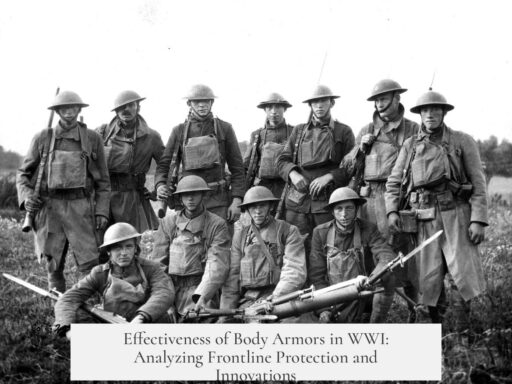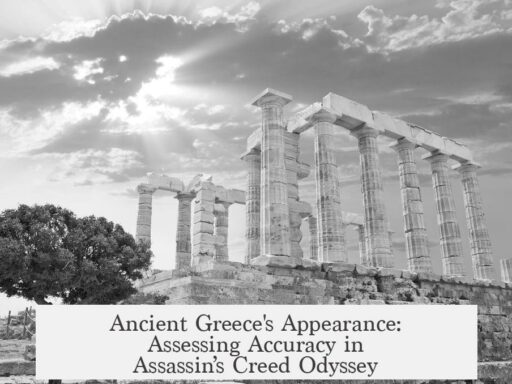In 1957, President Eisenhower did not overreact in federalizing the Arkansas National Guard and deploying the 101st Airborne to enforce desegregation in Little Rock. His decisive actions responded to direct state obstruction of federal court orders under the authority of the 1807 Insurrection Act. This intervention was legally justified, supported by the Supreme Court, and necessary to uphold the rule of law amid intense local resistance.
Arkansas Governor Orval Faubus used the Arkansas National Guard (ANG) to block the integration of Central High School, defying a federal court mandate to desegregate public schools following the Brown v. Board of Education decision. To counteract this, Eisenhower federalized the ANG, thereby placing it under federal command to enforce the integration order rather than oppose it. The President then ordered the 101st Airborne Division to Little Rock to protect the nine African American students integrating the school.
The choice of the 101st Airborne over the Arkansas National Guard was strategic. Federal authorities distrusted the ANG’s willingness to carry out the court’s orders due to their previous role in supporting state opposition. Deploying a reliable, federal military unit guaranteed the enforcement of desegregation and provided protection amid hostile crowds.
Eisenhower grounded these actions in the 1807 Insurrection Act, which permits the President to introduce federal troops to suppress state-level resistance to federal law or court orders. Though the Act itself was not explicitly quoted by Eisenhower, it forms the legal basis for overriding state authorities obstructing judicial mandates.
Reactions to Eisenhower’s intervention were sharply divided along regional and political lines. In the South, segregationists vehemently opposed the federal actions. The backlash was fierce; resentment over integration led Governor Faubus to gain overwhelming re-election support with 82.47% of the vote, illustrating the depth of pro-segregation sentiment. Prominent Southern politicians like Senator Harry Byrd pushed for extreme resistance, including the Southern Manifesto and attempts to shut down public schools forced to integrate.
Resistance was not limited to political dissent but often turned violent. African American students faced physical assaults and intimidation. For example, Melba Beals, one of the “Little Rock Nine,” experienced brutal attacks including being chased and beaten by mobs while being protected by authorities. Such extreme animosity underscores the volatile environment Eisenhower confronted.
Judicial rulings reinforced Eisenhower’s authority. The Supreme Court’s decision in Cooper v. Aaron (1958) invalidated attempts by Little Rock’s school board to delay integration. This ruling implicitly affirmed the President’s duty and power to enforce federal court orders, counteracting claims that his military intervention was excessive.
Comparatively, Eisenhower’s action in Little Rock contrasts with the federal response to similar events, such as in Mansfield, Texas, where he did not deploy troops. The difference was that the Texas officials did not use their National Guard to impede desegregation; in Arkansas, the ANG actively prevented integration, necessitating federalization and military deployment.
Evaluating whether Eisenhower overstepped requires understanding the context: a state government defying clear federal law, backed by an unauthorized National Guard, and accompanied by violent public opposition. Eisenhower’s response was measured, legally sound, and aimed at preserving constitutional order rather than political posturing or overreach.
| Aspect | Explanation |
|---|---|
| Legal Authority | 1807 Insurrection Act underpins federal intervention to enforce court orders |
| Military Use | Federalized Arkansas National Guard + deployed 101st Airborne to secure compliance |
| Public Reaction | Segregationist backlash intense; Faubus re-elected with strong support |
| Judicial Support | Supreme Court upheld desegregation enforcement in Cooper v. Aaron |
| Violence & Intimidation | African American students faced assaults necessitating federal protection |
| Comparative Cases | No federal troops in Mansfield due to lack of National Guard obstruction |
The President’s authority was challenged mainly by segregationists in the South, not by legal or constitutional experts. Eisenhower’s intervention set a precedent for the federal government’s role in enforcing civil rights, reinforcing that states could not defy Supreme Court rulings with impunity.
- Eisenhower acted within his legal authority under the 1807 Insurrection Act.
- Federalizing the Arkansas National Guard was necessary to override state resistance.
- The 101st Airborne ensured protection where the ANG could not be trusted.
- The Supreme Court supported federal enforcement of desegregation orders.
- Southern political backlash reflected deep segregationist sentiment, not disagreement on presidential power.
Was Eisenhower Overreacting by Federalizing the Arkansas National Guard and Sending the 101st Airborne to Little Rock?
In 1957, President Eisenhower’s decision to federalize the Arkansas National Guard and deploy the 101st Airborne to Little Rock was not an overreaction but a constitutionally backed, necessary move to enforce federal court orders amid intense state resistance. This action starkly contrasted the usual reluctance of presidents to intervene so directly in state affairs. Let’s unpack why.
At the heart of the matter was the ongoing battle over desegregation in Southern schools. The Brown v. Board of Education Supreme Court ruling in 1954 declared segregation unconstitutional, but entire states, including Arkansas, dug in their heels. Governor Orval Faubus openly defied the mandate by using the Arkansas National Guard (ANG) to block African American students from entering Central High School in Little Rock. That’s when Eisenhower stepped in.
The Legal Muscle: The 1807 Insurrection Act
Eisenhower invoked the 1807 Insurrection Act. This law authorizes the president to use federal military forces to enforce federal laws and maintain peace when states resist. Unlike deploying the National Guard for routine exercises or emergencies, this move was about upholding the Constitution and federal court rulings.
Since Faubus used the Arkansas National Guard to oppose desegregation, Eisenhower had to federalize the Guard, essentially wresting control from the governor to ensure orders were followed. Then, trusting that the ANG couldn’t be relied upon to enforce integration, he rightly called in the 101st Airborne Division, a trusted and disciplined federal force, to support the effort. Eisenhower’s reliance on the 101st was a smart move based on necessity, not impulse.
So, Was It Overstepping?
Segregationists viewed the federal intervention as a massive overreach. Many “completely lost their shit” — to put it mildly. Southern sentiment was deeply rooted in keeping schools segregated. In fact, Faubus rode this backlash to a landslide re-election victory, winning over 82% of the vote. That’s some serious local support for defying federal law.
The Southern Manifesto, spearheaded by Senator Harry Byrd, pushed segregationists to extreme measures. Some preferred closing public schools entirely rather than integrating. Central High School went dark for a year rather than welcome Black students. This resistance included violence so brutal that young Melba Beals—or all nine Little Rock Nine—faced hatred, assault, and even death threats daily.
“I’ll show you n—–s the Supreme Court can’t run my life,” a white assailant yelled at 12-year-old Melba Beals after attacking her.
School officials themselves admitted they might have to let a mob take a kid, given how many armed people surrounded the school. This wasn’t a peaceful protest against federal intrusion—it was violent rebellion against civil rights.
Judicial Backing: Cooper v. Aaron (1958)
The Supreme Court did not just sit on its hands. It decisively rejected attempts to delay integration in Cooper v. Aaron, explicitly affirming that states could not ignore their constitutional obligations. This provided Eisenhower strong judicial backing for his use of executive power.
Why Little Rock, Not Mansfield?
Interestingly, Eisenhower had faced a similar situation in Mansfield, Texas, a year before. But he did not federalize forces there. The key difference: in Mansfield, the local National Guard did not obstruct federal orders to the extent seen in Arkansas. Faubus’s direct use of the ANG as a barrier to integration in Little Rock crossed a line that demanded federal intervention.
Historical Perspective: Was It Necessary?
From today’s viewpoint, Eisenhower’s intervention appears well within presidential authority. He used legal tools correctly and judiciously. He did not act unilaterally for personal power but out of obligation to uphold the Constitution and Supreme Court rulings.
His actions were unpopular in the South but crucial in enforcing civil rights laws that state officials tried to ignore. Refusing to act would have emboldened states to resist federal law with their own militias or guards, potentially unraveling the rule of law and deepening segregation.
Lessons and Legacy
- Eisenhower’s federalization of Arkansas’s National Guard sets a precedent for strong executive action against state defiance.
- The 101st Airborne’s deployment demonstrated the need for reliable federal forces in contentious civil rights enforcement.
- The violent backlash and political fallout highlight how deeply segregation was entrenched, shaping decades of civil rights struggles to come.
- The legal grounding through the Insurrection Act and Supreme Court rulings affirm the president’s role in safeguarding federal law and civil rights.
So, next time you wonder whether Eisenhower was going too far, ask: Was it really presidential overreach to uphold the Constitution when a governor openly defied it? Or was it a calculated, lawful step to keep the country moving towards equality?
Clearly, it was the latter.
Why did President Eisenhower federalize the Arkansas National Guard and deploy the 101st Airborne in 1957?
Eisenhower federalized the Arkansas National Guard because the state guard was being used to block a federal court order. The 101st Airborne was deployed because the Guard could not be trusted to enforce desegregation safely and effectively.
Was Eisenhower’s use of the 1807 Insurrection Act legally justified?
Yes, the 1807 Insurrection Act gave Eisenhower authority to intervene to enforce federal court orders. His actions were later supported by the Supreme Court in Cooper v. Aaron (1958), which rejected efforts to delay integration.
Did people view Eisenhower’s intervention as an overreach of presidential power?
Segregationists in the South saw it as an overreach and strongly opposed it. However, legally and historically, the intervention is considered justified to enforce court orders amid state resistance.
Why was the 101st Airborne used instead of local forces to enforce desegregation?
The Arkansas National Guard was unreliable and sympathetic to segregationist resistance. The 101st Airborne was brought in to ensure order and protect students complying with the court ruling.
What was the public reaction in the South to Eisenhower’s actions at Little Rock?
The reaction was largely negative among segregation supporters. Governor Faubus won re-election by a large margin, reflecting local anger. Some communities even closed schools rather than integrate, showing intense opposition.


